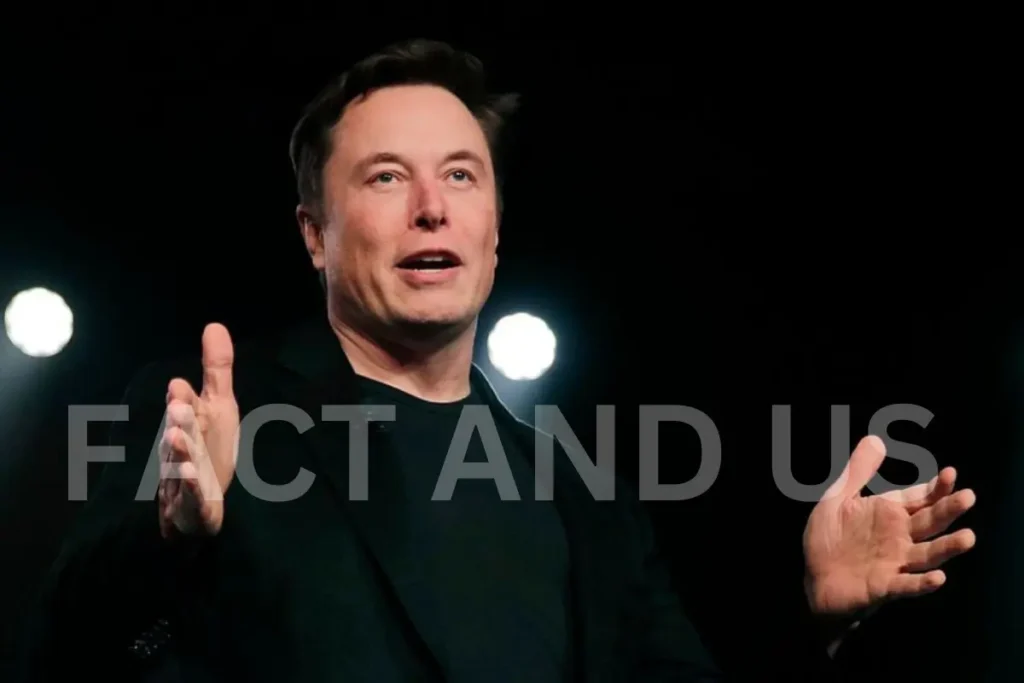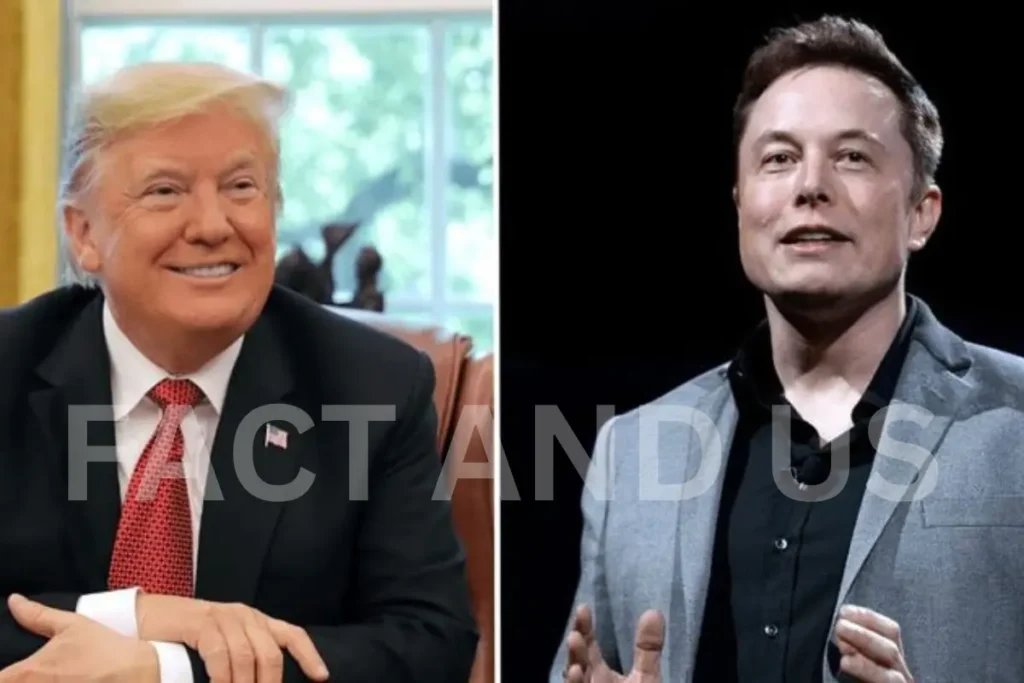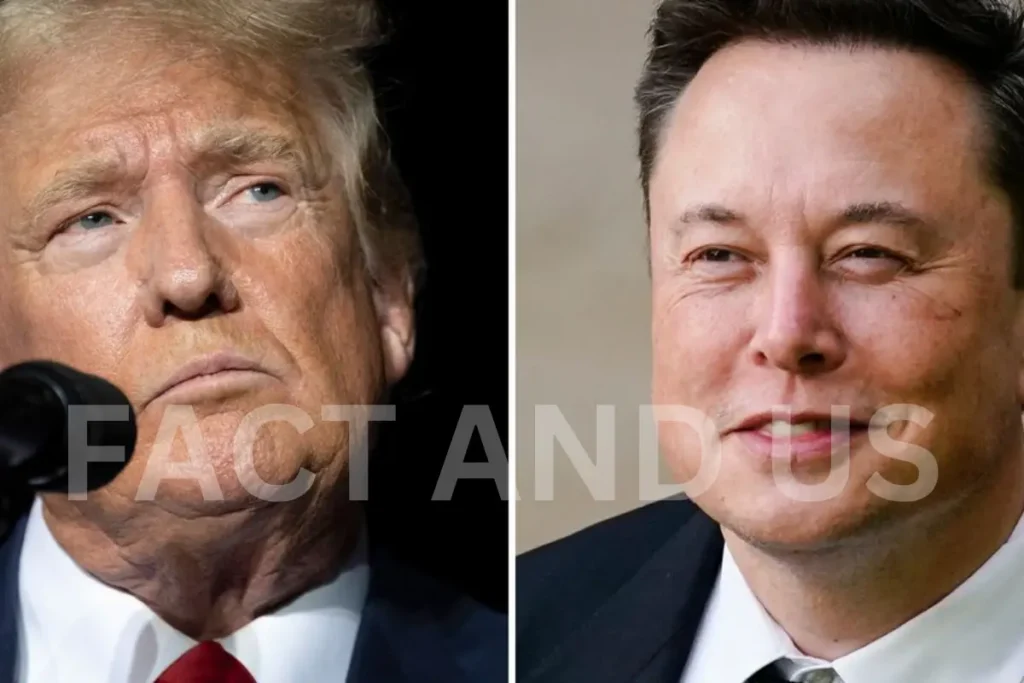The world’s richest man, once deeply skeptical of Donald Trump , has now endorsed him and has emerged as a central character in the presidential race.

Minutes after Donald Trump announced that he had selected JD Vance as his running mate, Elon Musk rushed to endorse the two Republican candidates to his 190 million followers on the social network that he owns. The tech billionaire proclaimed on X, formerly Twitter, that the ticket “resounds with victory”.
Contents
Musk’s full-throated backing of Trump
Since the assassination attempt on Trump this past weekend, the CEO of Tesla and SpaceX has thrown his support behind the Republican party and positioned himself as the herald of Silicon Valley’s shift rightward. He wrote on X the day of Trump’s near-fatal shooting: “I fully endorse President Trump and hope for his rapid recovery” and called on others in the industry to join him. Musk, in contention for the title of the world’s richest man, will reportedly pledge $45m a month to a pro-Trump political action committee backed by other wealthy tech elites.
Musk’s open support for one presidential candidate is a break from the role that major social media heads and big tech leaders have traditionally played in US politics. His wholehearted embrace of Trump and the Republican party is more the continuation of a rightward shift than an abrupt about-face, but endorsing Trump while steering one of the world’s most influential sites for political discourse and advertising represents an unprecedented position.
Mark Zuckerberg, Musk’s rival in the social networking industry, has shied away from taking sides in elections while running Meta, parent company of Facebook, Instagram and WhatsApp. Jack Dorsey, former Twitter CEO, donated to the long-shot 2020 campaigns of Tulsi Gabbard and Andrew Yang but did not advocate for either candidate in the general election. Musk’s willingness to openly promote his political beliefs is a shift from how other social media leaders have strained to appear only as apolitical, pro-democracy stewards.
Dorsey and Zuckerberg previously defended themselves in front of congressional committees over allegations of anti-conservative bias, and the latter has since backed away from making political donations to election security following right wing backlash. Zuckerberg has been especially quiet this election cycle, mostly posting PR-friendly content of him celebrating a birthday or wake surfing on the Fourth of July.
The Meta CEO and his deputies have asserted that their newest network, the X imitator Threads, is not a place to find news or political discussion online. The YouTube CEO, Neal Mohan, and Snap CEO, Evan Spiegel, have rarely dipped their toes into politics and have not endorsed candidates in this election. TikTok CEO, Shou Zi Chew, finds himself caught between political enemies past and present. Trump tried to ban the app in 2020 but now says he’s “for TikTok”; Joe Biden signed a bill banning the app if it did not sell to an American parent company in 2024.

Musk, by contrast, has become consistently, overtly political. He frequently engages with and posts anti-immigrant content, declares his opposition to trans rights and attacks diversity, equity and inclusion initiatives. During the 2022 midterms, he stated that for the first time he would be voting Republican – casting his ballot for a congressional candidate who posted support for the Qanoon conspiracy theory.
Although Musk stated on Wednesday that X will remain a “free speech” platform and he will not ban leftwing accounts, it remains to be seen whether the platform will remain entirely neutral. Already, he has used his pulpit to advocate for Trump and amplify other conservative tech billionaires while pushing right wing narratives around the assassination attempt.
The opaque nature of Twitter’s recommendation algorithm also means that Musk could decide to boost certain types of content over others if he chooses, promoting his preferred political narratives over others. The social network previously throttled traffic and slowed down loading times to sites that were critical of Musk, a Washington Post analysis found last year, and X’s hollowed-out content moderation teams frequently allow online abuse and misinformation to spread.
A little over two months ago, Elon Musk found himself at Mont sorrel, the palatial Palm Beach compound of Nelson Peltz, the famed activist investor. Mr. Musk knew the sprawling grounds well, having stayed in the guesthouse.
The topic of conversation was a bit different than usual, though: Mr. Peltz had brought together a group of billionaire conservative financiers — including Steve Wynn, the Las Vegas casino magnate, and the hedge-funder John Paulson — to dive into concerns about whether Republicans could seize Senate control, as well as the party’s weak ground game, according to a person with direct knowledge of what transpired.
But Mr. Musk had a darker message that spring day. He told the group that this would be the last free election in America — because if President Biden won, millions of undocumented immigrants would be legalized and democracy would be finished, according to the person.

Mr. Trump had to win, Mr. Musk said. He dispensed some advice for the veteran financiers, who had decades more experience in Republican politics than he did: Their emphasis on political advertising was misplaced, he said. Tesla, his electric car company, barely advertises, he said, but had still built a cult following through word of mouth. Why couldn’t Republicans do the same? The most important thing that the financiers could do, Mr. Musk said, was ask two people to support Mr. Trump, and urge them to ask two more. Two people by two people — that’s how the former president would win.
Mr. Musk has transformed himself from an idealistic supporter of Democrats like Barack Obama into a fierce ally of Mr. Trump, whom he flirted with for months and endorsed last weekend roughly 30 minutes after the former president survived an assassination attempt.
In fact, Mr. Trump’s campaign at one point had talked with Mr. Musk about him delivering remarks at this week’s Republican National Convention. Mr. Musk said on Thursday he was not speaking.
Mr. Musk is more comfortable than ever revealing his conservative sympathies. But the role that he has played in supporting Republicans financially is not widely known, in part because he has tried to avoid making public donations.
He has emerged as a central character in the presidential race, targeted by the Biden campaign and celebrated as an almost mythical figure by Mr. Trump’s advisers. Angry at liberals over immigration, transgender rights and the Biden administration’s perceived treatment of Tesla, the mercurial Mr. Musk has undergone a midlife reinvention that has many Republicans salivating about him as the party’s moneymaker — if only he will deliver. This article is based on interviews with about two dozen of Mr. Musk’s political associates, friends and Republican Party allies, many of whom insisted on anonymity to disclose private conversations. Mr. Musk and his aides did not respond to requests for comment.
Woody Johnson, a preeminent Republican fundraiser and Mr. Trump’s former ambassador to Britain, said he welcomed Mr. Musk into the party as an ideological convert.
“Explore all ideas — and come up with the best one,” Mr. Johnson quipped in an interview. “There’s nobody in the world like Musk. We’re lucky as Americans to have him. He is the most innovative — besides Trump.”
Dismissing Trump as a ‘stone-cold loser’

Mr. Musk was once allergic to Washington. He maintained a decent relationship with Mr. Obama and made several White House visits to build support for Tesla and SpaceX, his rocket manufacturer. But he generally disliked meeting with other politicians and saw political donations as a necessary evil, according to four people who worked with him.
Days before the 2016 election, he told CNBC that Mr. Trump did not “seem to have the sort of character that reflects well on the United States.” After Mr. Trump won, Mr. Musk told some associates that the outcome was proof that they were living in a simulation, according to one person close to him. In 2020, Mr. Musk, in a private conversation with another associate, called Mr. Trump a “stone-cold loser.”
In 2022, the former president, for his part, used an expletive to describe the Tesla chief executive at a rally.
Big promises, little follow-through
Mr. Musk has become an obsession of many Trump officials and Republican fund-raisers, who see him as the party’s next great hope — or a meal ticket for themselves. But over the years, he has acquired a reputation in political circles as something of a flake. Some conservative activists said they wished that Mr. Musk had followed through more on promises to fund free-speech lawsuits by people who believed that they had been censored on social media.
Mr. Musk can be hard to pin down, and rumors fly about him in Republican circles. In 2023, when Kevin McCarthy was elected as House speaker, the California politician gave a party at the Library of Congress, and some aides were told until shortly beforehand to expect Mr. Musk to show up and speak. But he didn’t, disappointing some in the crowd, a person involved in the event recalled.
An embrace of dark money
Mr. Musk has said that he tries to stay out of politics, and he has not donated to a federal political group since the 2020 cycle, according to campaign finance records. He has gone to great lengths to avoid leaving a public footprint of the contributions he does make. Deed, he learned a tough lesson when he made his largest disclosed gift ever, a $50,000 donation in 2017, to the McCarthy Victory Fund, a group aligned with Mr. McCarthy. The disclosure of that donation angered liberals. He learned from that experience to prioritize giving to dark-money organizations, a person familiar with his thinking recalled.
In recent communications with Republicans, Mr. Musk and his associates have expressed a desire not to make political contributions to groups whose donations must be legally disclosed. He told a friend a few months ago that he wanted to find a way to support Trump but didn’t want to do it publicly, the friend recalled.
The tug of war

As Mr. Musk sought help on politics, the people he turned to sought to influence him.
He had gotten to know Mr. McCarthy over the last decade thanks to the former speaker’s advocacy for SpaceX. They now text frequently, and Mr. Musk has often relied on Mr. McCarthy over the years for advice on politics and lobbying.
Mr. McCarthy has been eager to highlight his relationship with Mr. Musk, and has gone to great lengths to cultivate him, according to people familiar with their relationship.
He interviewed the billionaire at an exclusive conference in Sea Island, Ga., hosted by the conservative American Enterprise Institute, and invited Mr. Musk to headline a fund-raising retreat for Mr. McCarthy’s donors in Wyoming. Mr. Musk also flew to Washington for the congressman’s birthday last year.
The final turn to Trump
It appears those liberal friends are losing the tug of war. Mr. Musk met with Mr. Trump in March and now talks with him directly on occasion, according to people familiar with the relationship. The two have spoken about electric vehicles, as well as technology like so-called deepfake videos, the former president has told donors who relayed his remarks.
During the Trump term, Mr. Musk once asked his top executives at Tesla how many of them had voted for Mr. Trump, and was alarmed to hear that none of them had, according to a person with knowledge of the meeting.
“I have had some conversations with him, and he does call me out of the blue for no reason,” Mr. Musk said last month at Tesla’s annual shareholder meeting.
